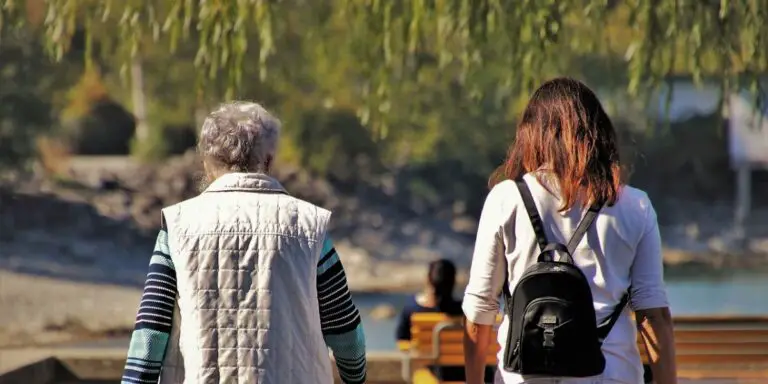
Summary
- Role Overview: Carers provide essential support to individuals needing help due to age, illness, or disability, often forming personal connections with those they assist.
- Daily Responsibilities: Key duties include assisting with personal care, meal preparation, medication management, and health monitoring, ensuring the well-being of those in their care.
- Emotional and Social Support: Carers play a significant role in offering companionship, encouraging independence, and facilitating social interactions to enhance the quality of life for those they support.
- Advocacy and Record Keeping: Acting as advocates, carers communicate the needs of individuals to healthcare providers and maintain accurate records of care plans and medical history, ensuring a coordinated approach to care.
Caring is demanding yet rewarding. Carers provide essential support to people who may need assistance due to age, illness, or disability. Carers play an integral role in health and social care systems. While every situation varies, there are universal responsibilities every carer should understand.
This guide highlights the key duties of carers, providing insights into what it takes to succeed in this essential role.
Who is a Carer?
A carer offers unpaid care to someone who requires help. Their commitment often arises from personal connections, like family or friends, rather than professional obligations. However, professional carers, hired through agencies or care homes, undertake similar tasks on a paid basis.
Daily Living Assistance
Personal Care
Carers often assist with personal hygiene tasks. These may include:
- Helping the person bathe or shower
- Assisting with teeth brushing and other oral hygiene needs
- Managing hair care and grooming
- Supporting dressing and undressing
Meal Preparation and Nutrition
Ensuring nutritional needs are met is essential. Key tasks include:
- Planning balanced meals
- Shopping for groceries
- Preparing and serving meals
- Supporting with feeding if necessary
Medication Management
Carers are responsible for managing medication regimes. Their tasks often include:
- Collecting prescriptions
- Reminding the individual to take their medication at prescribed times
- Monitoring possible side effects or reactions
- Ensuring medication is stored correctly
Health Monitoring
Observing Changes
Carers need to be vigilant in observing physical or mental changes in the person they care for. They need to:
- Track weight changes
- Note any changes in appetite or sleep patterns
- Observe mood fluctuations
Medical Appointments
Carers often help with organising and attending medical appointments. Duties in this area involve:
- Scheduling regular check-ups
- Providing transport to the appointment
- Communicating with healthcare professionals
- Following through with recommended treatments or therapies
Emotional Support
Offering Companionship
Providing emotional support is just as important as physical care. Carers should:
- Spend time engaging in conversation
- Encourage hobbies or activities to improve mood and motivation
- Listen and provide reassurance during difficult times
Encouraging Independence
Helping someone maintain independence is fundamental. This includes:
- Finding tasks the individual can handle on their own
- Encouraging decision-making and choice
- Supporting mobility and self-sufficiency
Social Interaction
Enabling Socialisation
Social interaction can boost well-being. Carers should:
- Encourage visits with friends and family
- Facilitate participation in social activities or clubs
- Support involvement in community events
Advocacy and Communication
Acting as an Advocate
Carers can be an essential voice for those they support. They should:
- Understand the rights and entitlements of the individual
- Assist with communicating their needs to healthcare providers
- Advocate for suitable services or interventions
Maintaining Records
Precisely maintaining records is essential. This may involve:
- Documenting medical history and treatments
- Keeping track of care plans and updates
- Storing contact information for healthcare providers and emergency contacts
Navigating Government and Social Services
Understanding Benefits
Carers help navigate the complex world of benefits and entitlements. They should:
- Keep up-to-date with potential benefits like Carer’s Allowance
- Assist in filling out and submitting applications
- Ensure the person receives all available support
Liaising with Services
Working with various services may be necessary. Tasks include:
- Coordinating with social workers, healthcare professionals, and relevant organisations
- Ensuring all involved parties are aware of evolving care needs
Maintaining a Safe Environment
Ensuring Home Safety
Carers make sure the home environment is safe:
- Identifying potential hazards and taking steps to mitigate risks
- Ensuring mobility aids or equipment are used safely
- Keeping the living area clean and clutter-free
Emergency Preparedness
Being prepared for emergencies is essential. A carer should:
- Know emergency contact numbers
- Plan escape routes and understand fire safety measures
- Have a first-aid kit readily available
Financial Management
Handling Finances
Managing finances can be an essential component of a carer’s duties:
- Assisting with budgeting and managing day-to-day expenses
- Helping with bill payments
- Preventing financial exploitation by monitoring suspicious activity
Personal Development and Self-Care for Carers
Seeking Support
Caring can be exhausting, requiring carers to seek support for themselves:
- Participating in carer support groups
- Seeking respite care or breaks when necessary
- Accessing training or resources to enhance skills
Maintaining Well-being
Self-care is essential:
- Prioritising rest and nutrition
- Practising stress-management techniques
- Sharing care responsibilities with others when possible
Final Thoughts
The role of a carer is multifaceted, involving a range of duties essential for the well-being of those needing care. From personal support and emotional companionship to administrative tasks and advocacy, each responsibility requires dedication, compassion, and specific skills. Carers improve lives and strengthen communities, ultimately making a profound difference to the lives of those they support. By understanding and fulfilling these duties, carers can deliver high-quality care, benefiting society as a whole.
Knowing the responsibilities involved helps prepare potential carers for the challenges and rewards of this essential role. Understanding these duties fully equips individuals to provide the highest standard of care for their loved ones, fostering independence, dignity, and quality of life.
Subscribe to Newsletter
Get the latest news and updates from Care Learning and be first to know about our free courses when they launch.




